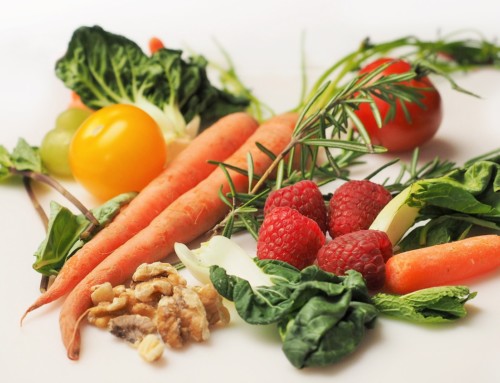A Vegetarian Pregnancy – How Healthy Is It?
 Vegetarian diets have become increasingly popular in recent years. As a result, more and more expecting moms are opting for a vegetarian pregnancy. Whether you’ve made the choice to remain a vegetarian due to environmental concerns or you simply don’t like meat, we can help set your mind at ease.
Vegetarian diets have become increasingly popular in recent years. As a result, more and more expecting moms are opting for a vegetarian pregnancy. Whether you’ve made the choice to remain a vegetarian due to environmental concerns or you simply don’t like meat, we can help set your mind at ease.
Is a Vegetarian Pregnancy Healthy?
The health of any diet, whether a vegetarian or vegan diet, is really how you plan and account for all the required nutrients. A vegetarian pregnancy is perfectly healthy so long as you find an appropriate means to sustain the nutritional requirements for you and your baby.
You will do best so long as you continue to meet the suggested nutritional guidelines set by the American College of Obstetrics and Gynecology (ACOG). Speak to your healthcare provider right away if you have concerns for how your diet will impact the development of your baby.
What to Look for in Your Diet
When planning your vegetarian pregnancy, the food pyramid remains an excellent place to start. The five food groups of the food pyramid include grains, fruits, vegetables, proteins, and dairy.
- Grains: Seek out fortified grains during your pregnancy. Breads, cereals, and even pastas are fortified with added nutrients. Fortified nutrients to look for include vitamin B-12 and vitamin D.
- Fruits & Vegetables: These two categories are combined together due to how they work hand-in-hand. By using a mix of dark leafy greens such as spinach, along with other vegetables like olives, asparagus, leeks, and scallions you can find an excellent source of iron. Dried fruits such as apricots are another outstanding choice and source of iron. Just be sure to mix in sources of vitamin C so that your body is able to properly absorb the nutrients. Many citrus fruits are a great source of vitamin C. It’s important to note that all fruits and veggies should be washed prior to eating them. Even organic produce may contain pesticides!
- Protein: Meat and dairy products are not the only place to find protein in your diet. Another excellent source includes beans, peas, peanuts, and other legumes. The beans will also give your body another source of iron. Providing your body a steady supply of protein is an excellent way to ensure your baby has the essential building blocks for growing muscles and other tissues.
- Dairy: Milk is another great place to find vitamin B-12 for expecting moms. Just be sure the milk is pasteurized. If dairy milk is not on your menu, then look at the milk alternatives to see which is right for you. Many varieties of soy milk, for example, come fortified with B-12.
Additional Dietary Considerations
Here are a few other things to keep in mind as you plan:
- Folic acid: Your physician has likely already directed you to take your daily folic acid supplement. This nutrient is critical to your baby’s neural development. Talk to your doctor about what dosage is right for you if you haven’t already.
- Omega-3: Recent research studies have provided mixed result regarding the benefits; however, some evidence does exist that omega-3 is associated with neural development of the fetus and diets rich in omega-3 supplements while in utero and during the first four-months of nursing may help your baby with improved brain development.
- Supplements: According to the ACOG, a well-rounded diet should continue to provide all your nutritional needs. If you are a concerned, a supplement may make sense; just talk to your healthcare provider about which supplement is right for you.
What to Avoid During a Vegetarian Pregnancy
There are several foods you need to be on the lookout for when you’re pregnant. Depending on how strict a vegetarian you are, these may already be off your menu. Stay clear of foods that include the following:
 Potential Sources of Listeria:
Potential Sources of Listeria:
- Soft cheeses.
- Raw sushi.
- Undercooked eggs.
- Raw dough.
- Heavily processed foods.
- Unpasteurized dairy products.
Potential Sources of Mercury:
- Swordfish, shark, and mackerel.
- Farm-raised salmon may be a concern as well – speak with your healthcare professional if concerned.
Other Sources of Bacteria:
- Raw vegetable sprouts including clover, alfalfa, and radishes.
Everything Else:
- Caffeine – talk to your health care provider regarding the recommended limits for caffeine intake.
- Alcohol – all forms of alcohol should be avoided and remember this can come from fermented fruit juices that have not been pasteurized as well.
As said above, a vegetarian diet can be a healthy choice during your pregnancy. Consulting with your health care provider and possibly a dietician, can help guide you to get the nutrients that you and your developing baby need.

